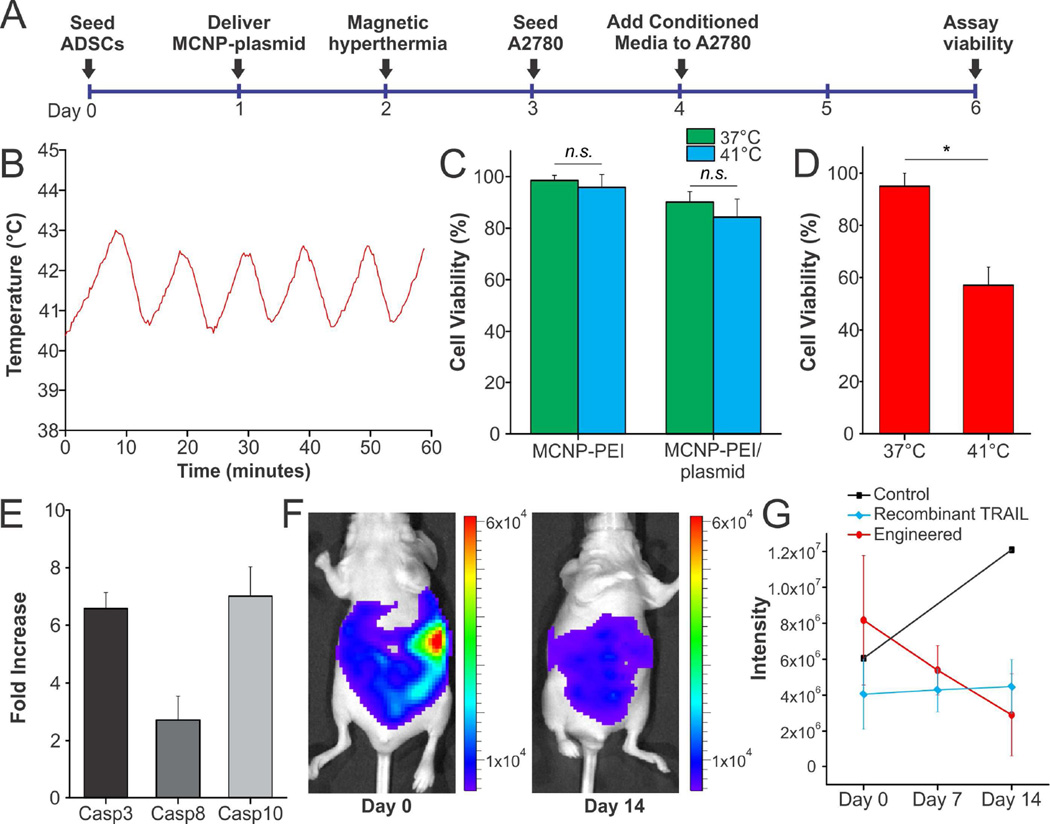FIGURE 6.
Engineered AD-MSCs Can Effectively Induce Apoptosis When Exposed to Heat. A) Timeline of the in vitro study. B) Mild magnetic hyperthermia with an average temperature of 41.5°C was maintained for one hour by periodically exposing the engineered AD-MSCs to an AMF (5 minutes on, 5 minutes off). C) Mild magnetic hyperthermia alone did not significantly affect AD-MSC viability. Moreover, the process of engineering the AD-MSCs with MCNP-PEI/plasmid complexes did not significantly affect cell viability. D) To test therapeutic efficacy, A2780 ovarian cancer cells were treated with conditioned media from the engineered AD-MSCs that were exposed to mild magnetic hyperthermia. A2780 cells showed a remarkable decrease in cell viability when compared to those treated with conditioned media from engineered AD-MSCs that had not been exposed to mild magnetic. E) To confirm the mechanism of action, qPCR for caspases, which are downstream of TRAIL, was performed. F) To evaluate in vivo efficacy, we injected half a million AD-MSCS engineered with MCNP-PEI/plasmid complex, wherein the plasmid was sTRAIL-EGFP. Unengineered AD-MSCs and a single dose of recombinant TRAIL (5 mg/kg) were injected as controls. Tumor volume was followed over two weeks, we found that the size of the tumors decreased significantly (max value at day 0 was 6 × 104 whereas the max value on day 14 was 8 × 103) when treated with the engineered AD-MSCs. G) Quantification of luminescence intensity shows that the engineered AD-MSCs are significantly better than treatment with a single dose of recombinant TRAIL.

